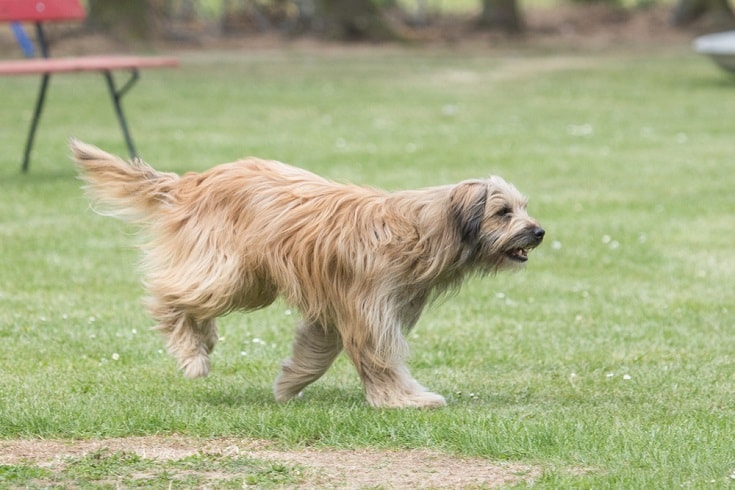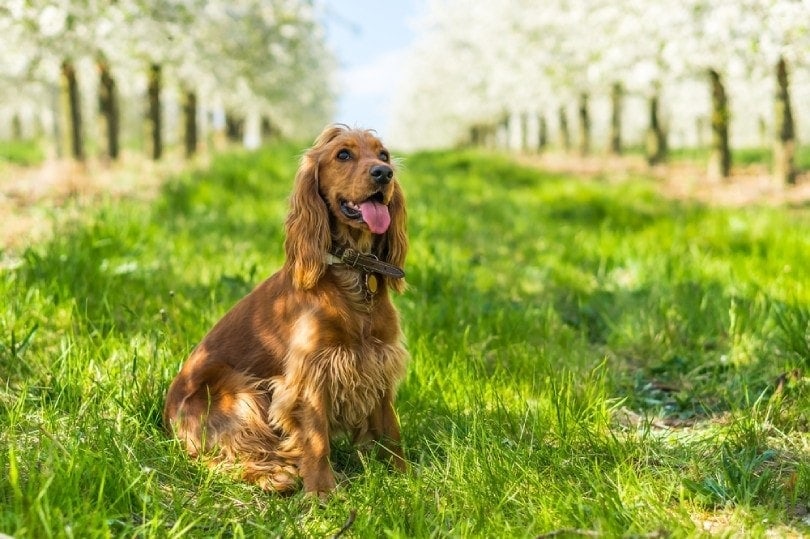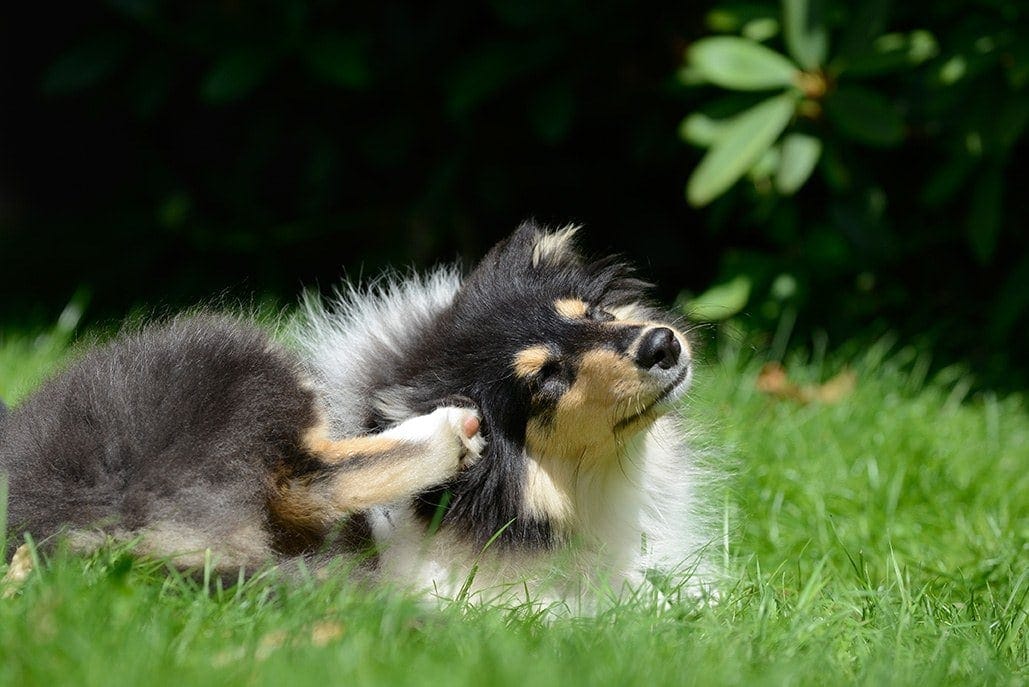Height:
15-20 inches
Weight:
30-55 pounds
Lifespan:
15-17 years
Colors:
Black, white, brown, grey, blue
Suitable for:
Active families looking for a companion
Temperament:
Loyal, Loving, Intelligent, Watchful, Reliable, Vocal
The Pyrenean Shepherd is a herding dog from the Pyrenean Mountain Range of France. They are the smallest French herding dog, but their size does not diminish from their ability to round up sheep and work the fields. They are relentless and highly energetic, and they have the demands that these characteristics entail. Provide plenty of exercise, keep them mentally busy, and you will have a playful, loving, and highly devoted dog to welcome to your family.
The Pyrenean Shepherd is a muscular dog. His energy demands mean that he is not well suited to life in an apartment, but once he feels part of the family, you can expect a loyal and loving four-legged family member. He may be reserved around strangers, but he will soon warm to people that are kind and loving with him.
Intelligent and eager to please, this purebred is highly trainable. He can be quite vocal and is highly alert, which means that he will make a good watchdog, although he should never be aggressive. If you want to curb his barking, it will require training from an early age and on an ongoing basis.
Pyrenean Shepherd Puppies – Before You Buy…
Pyrenean Shepherd Price
The Pyrenean Shepherd is prized for his herding prowess. The amount you have to pay for a puppy will depend on his history, his lineage, and the reputation of the breeder. Expect to pay between $800 and $2,000 for a pup. At the lower end of the scale, you will find those puppies that are best suited to life as a family pet. You will need to pay closer to the higher end of the scale if you are looking for a show quality dog, or one whose parents are experienced and capable herders.
Always use a reputable breeder. Disreputable breeders keep their dogs in poor conditions and, as well as being inhumane, this can lead to social and behavioral problems.
Join breed groups and ask any Pyrenean Shepherd owners that you know for their advice. You can look for online ads, too, but always ensure that you ask the right questions of potential breeders. Ask for evidence of screening and health tests, and ask to meet at least one of the puppy’s parents. This is usually the mother dog, and she should give you some indication of the characteristics that your dog will adopt later in life.
Although the Pyrenean Shepherd is a purebred, you may find some of this breed in shelters and local pounds. Adopting a dog from a rescue will cost you around $300, rather than the $1,000 that it costs to buy a puppy. However, you will need to gather information about the reason they are in the rescue. This breed is known for being vocal, and it can be territorial and shy around strangers. Ensure that you meet the dog at least once before you adopt and try to introduce any existing dogs before you take your new Pyrenean Shepherd home.
3 Little-Known Facts About Pyrenean Shepherd
1. They Were Widely Used During WWI
The Pyrenean Shepherd is, first and foremost, a herding dog, but the French deployed this breed during World War I. They were used as couriers, as well as search and rescue dogs. They were highly effective in their roles, which they adapted to so well because they are intelligent and eager to please. Their intelligence is still evident and, in a household environment, they can even learn to do some household chores and perform regular duties.
2. They Can Run Incredible Distances
As a herding dog, the Pyrenean Shepherd is expected to manage a herd of several hundred dogs. To effectively herd this many sheep and livestock, they are expected to run 20 miles or more every day. This means that they are more than capable of running or hiking with you. They are also agile, which means that they can run obstacle courses and agility. Your pup will enjoy long walks, but he will prefer time off his leash to run and charge around.
3. They Are Easy to Train
Pyrenean Shepherds are highly intelligent and are eager to please. They are considered easy to train, and they will learn new behaviors and new commands quickly. You need to ensure that your Pyrenean Shepherd learns good behavior and doesn’t figure it out for himself. If you don’t give clear directions and commands, your dog will decide what to learn for himself. Enroll in training classes, take part in dog agility, and look for ways to keep him entertained every day.
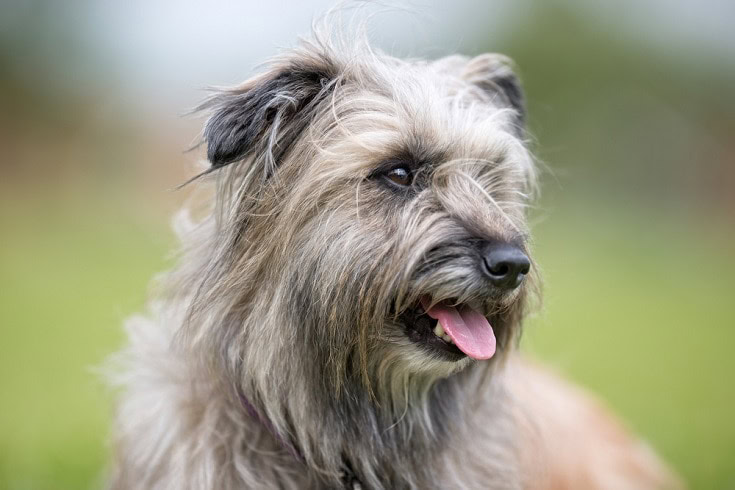
Temperament & Intelligence of the Pyrenean Shepherd
Although the Pyrenean Shepherd is a herding dog, he also makes a great family companion in the right circumstances. He will require regular training and early socialization, as well as ongoing exercise. They are highly intelligent, but they need constant stimulation in order not to become destructive.
Are Pyrenean Shepherds Good for Families?
Pyrenean Shepherds will get along with all family members and form a close bond with everybody, young and old. They will get along with children, especially those that are willing to play games, throw a ball, or pull a toy. You should always supervise time spent between dogs and really small children, regardless of the breed, however.
Do Pyrenean Shepherds Get Along with Other Pets?
A generally happy little dog, the Pyrenean Shepherd may be reserved around other dogs, especially when he first meets them in the park or out on walks. If you want to introduce your new Pyrenean to an existing dog, it is best to do this when they are both young because it will give them time to get to know one another gradually, without there being any aggression or other problems. The Pyrenean Shepherd is not especially known for having a high prey drive, but they may want to chase smaller animals.

Things to Know When Owning a Pyrenean Shepherd:
The Pyrenean Shepherd is lively, will become a loving member of your family, and he should get along with other dogs and cats if introduced gradually and calmly. However, no breed is perfect for all potential owners. Before buying or adopting this breed, there are several factors to consider.
Food & Diet Requirements
Feed your Pyrenean Shepherd between 2.5 and 4 cups of good quality food per day. If your Shep is a working dog, or he regularly takes part in active exercise like agility courses or running, he will need to eat more.
Exercise
The Pyrenean Shepherd is an active dog. The breed can run up to several miles a day while working as a herding dog. He can run similar distances with his family, although he doesn’t necessarily need this amount. You should be prepared to give a bare minimum of one hour of walks a day to your Pyrenean Shepherd. He will prosper with 90 minutes a day, will prefer agility classes and running off his leash, and the more strenuous the exercise you can provide, the better.
Training
Intelligent and eager to please, the Pyrenean Shepherd is considered easy to train, but you do need to be consistent and provide him with structure, to ensure that your Pyrenean Shepherd learns the commands and behaviors that you want him to.
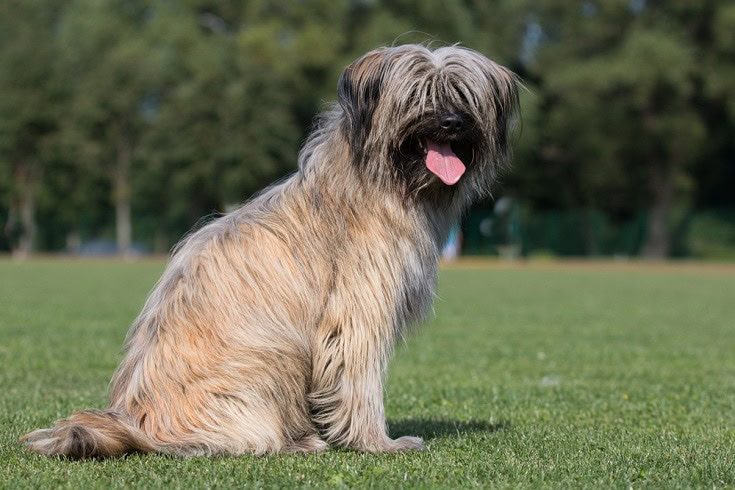
Grooming ✂️
Rough-faced Pyrenean Shepherds have medium to long hair. It is usually flat but may be slightly wavy. It has a harsh texture and he has a windblown look. The smooth-faced Pyrenean Shepherd has soft, fine hair. In either case, you will need to brush your Shep once a week to remove dead hair and to ensure that their coat doesn’t become matted or knotted. Only bathe your dog when necessary. Too frequent bathing will cause your Pyrenean Shepherd to lose natural oils from his fur, which can lead to coat deterioration and skin complaints.
Other than coat grooming, you only really have to worry about general care. This means brushing your dog’s teeth three times a week and trimming their nails when they get long and need trimming.
Health Conditions
The Pyrenean Shepherd is a purebred breed, which means that it can be prone to some genetic conditions. Look for symptoms of the following and seek professional treatment, if required.
- Collie eye anomaly
- Patellar luxation
- Patent ductus arteriosus
- Progressive retinal atrophy
- Epilepsy
- Hip dysplasia
Male vs. Female
Though the differences between the two are few, the male Pyrenean Shepherd may grow slightly larger than the female. Overall, the distinct characteristics of your Pyrenean Shepherd’s parents will play the biggest factor in their personality and temperament.
Final Thoughts: Pyrenean Shepherd
The Pyrenean Shepherd was traditionally bred as a herding dog in the rough terrain of the Pyrenean mountains in France. They are highly energetic and can run 20 miles or more in a day when herding. As a family dog, they still require this level of exercise to prevent them from becoming bored and potentially destructive. They are intelligent and will respond well to positive training. Join agility classes, puppy classes, and introduce daily training exercise to keep your dog mentally agile, as well as physically.
He will mix well with all members of the family, from junior to senior, and can be successfully introduced to cats and dogs at a young age. The breed is considered relatively healthy, has a decent lifespan, and does not have or intensive grooming requirements. He is better living in a house with a decent sized yard, however, and may struggle to adapt to life in an apartment.
Featured Image: Metz Eric, Shutterstock

